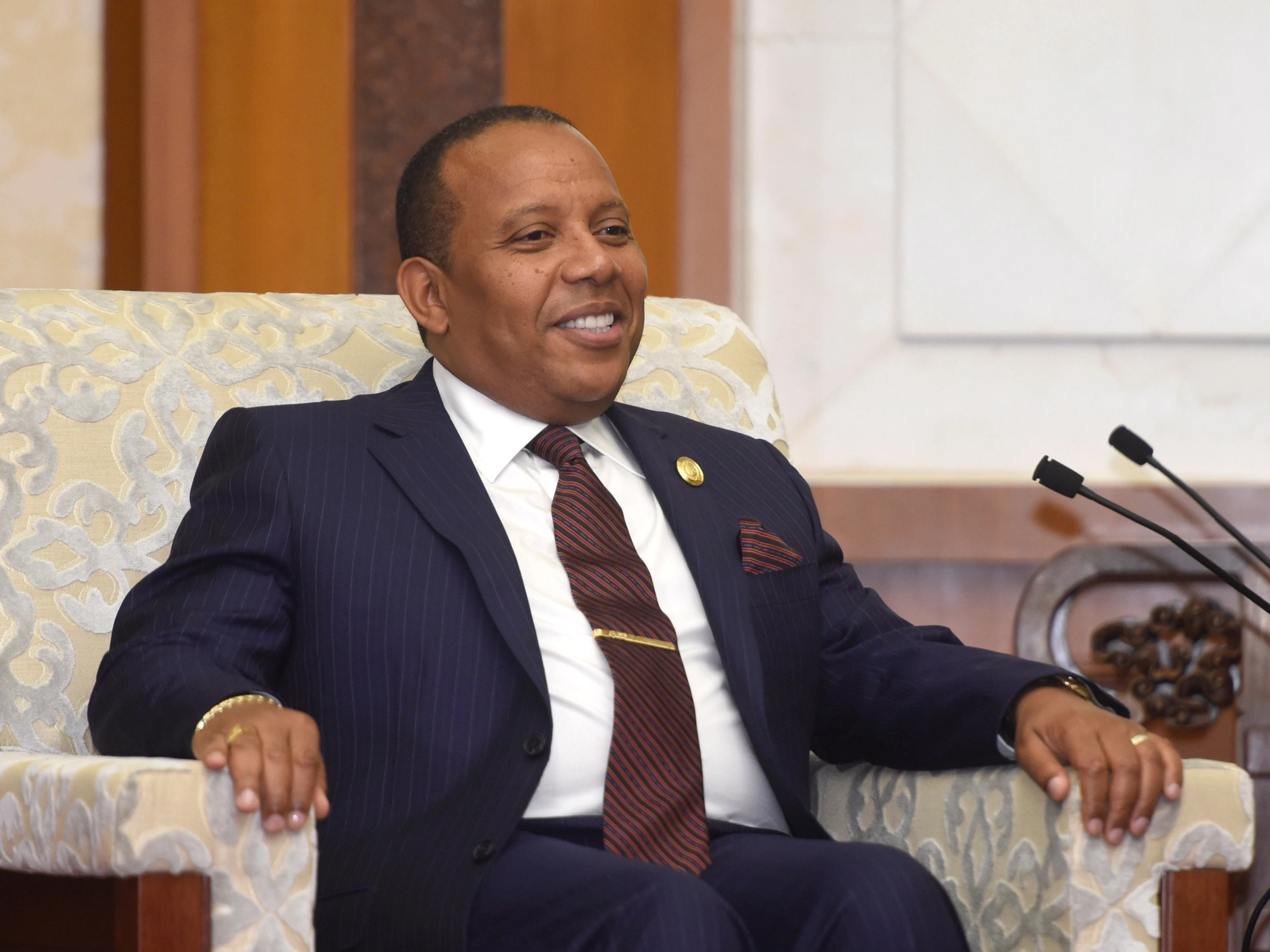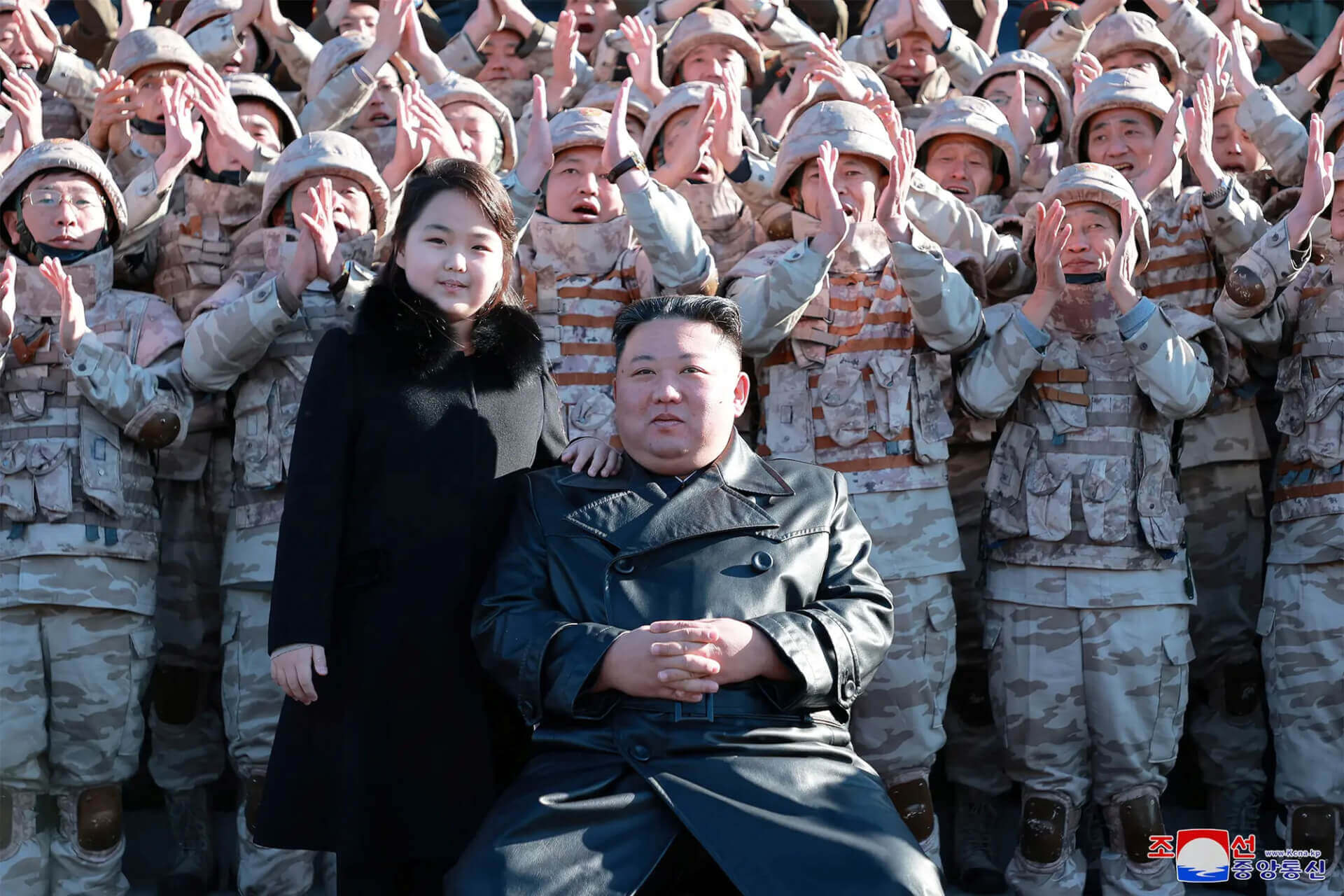South Asia
Indian Prime Minister Narendra Modi on Saturday congratulated the Indian Space Research Organisation and Bhutan’s Department of Information Technology & Telecom on their successful launch of the jointly-developed C54 satellite. He said the project “heralds the beginning of a new era, where Indian talent in space can be fully realised.” He also said it is a reflection of the “special relationship” India shares with Bhutan. [Prime Minister of India]
During a march in Rawalpindi on Saturday, former Pakistani Prime Minister Imran Khan said to tens of thousands of supporters said that he is refraining from calling a massive protest in Islamabad because the government and security forces would not be able to deal with it. “We could have created a situation like in Sri Lanka. I have decided against marching on Islamabad because I don’t want there to be anarchy in the country. I don’t want to cause any harm to this country,” he said. [Newswire]
Central Asia and the Caucasus
The Armenian Defence Ministry has rejected claims by Azerbaijan that Armenian soldiers opened fire at Azerbaijani military positions in Nagorno-Karabakh. Yerevan said the latest round of firing was initiated by Baku. “Azerbaijani Armed Forces violated the ceasefire overnight, opening fire from different calibre firearms in the direction of Armenian positions,” the ministry said. [Public Radio of Armenia]
Russian presidential spokesperson Dmitry Peskov on Sunday said the Collective Security Treaty Organization (CSTO) continues to remain relevant, despite opposite claims, referring to Armenian President Nikol Pashinyan’s criticism of the military alliance. Noting that the CSTO “remains in high demand,” Peskov said the organisation has “fully demonstrated its relevance and effectiveness, meaning the resolution of the situation in Kazakhstan,” pointing to the deployment of CSTO troops to Kazakhstan in January to quell nationwide protests. Last week, Pashinyan accused the CSTO of not responding to its calls for help against Azerbaijani aggression. [Reuters]
East and Southeast Asia
North Korean leader Kim Jong-un said the country’s newest intercontinental ballistic missile, the Hwasong-17, which was inaugurated on Sunday, is “the world’s strongest strategic weapon.” He remarked that the country’s scientists had made a “wonderful leap forward in the development of the technology of mounting nuclear warheads on ballistic missiles.” The leader’s newly-revealed daughter was also present at the ceremony, providing further indication of a possible succession plan. [The Japan Times]
Foxconn, the world’s largest iPhone manufacturer, is offering bonuses of up to $1,800 to existing staff at the Zhengzhou factory in China as it struggles to sustain its remaining workforce amid huge protests over salaries. [Bloomberg]
Europe
The Polish climate ministry and the German economy ministry are reportedly in talks about imposing sanctions on the Polish-German section of the Druzhba pipeline, which is currently exempted so that Poland can quit a deal to purchase Russian oil next year without getting fined. They are also deliberating on an agreement on how Warsaw can coordinate seaborne oil supplies to Germany via the Gdansk pipeline and through a part of Druzhba to enable Poland to buy the Russian-owned Schwedt refinery in Germany. [Reuters]
During a meeting with British Foreign Secretary James Cleverly in Kyiv on Friday, Ukrainian President Volodymyr Zelensky appreciated the United Kingdom’s “unwavering” support and defence aid worth $2.7 billion to Ukraine this year. “You are with us at this crucial time. Ukrainians will never forget this,” he affirmed. [President of Ukraine]
Latin America and the Caribbean
Following discussions in Mexico City, the Venezuelan government and the opposition on Saturday signed a second partial agreement under which the two sides have pledged to collaborate on social spending policies, including electricity and healthcare. Negotiations were resumed last week after a one-year suspension. [teleSUR]
Mexican President Manuel López Obrador on Sunday led a massive protest attended by hundreds of thousands of people in the capital, Mexico City. In recent months, López Obrador has faced pushback for his proposal to reform the electoral authority as well as his increased use of the military. Furthermore, there are reports that his government used the Pegasus spyware against journalists and human rights activists who rally against corruption between 2019 and 2021. [Associated Press]

Middle East and North Africa (MENA)
The Arab Monetary Fund on Sunday signed a deal to provide the Saudi-backed Yemeni government with $1 billion in economic aid to stabilise the tattered economy due to an eight-year-long war. [Reuters]
Syrian Democratic Forces (SDF) commander Mazloum Abdi said on Saturday they have stopped operations against Islamic State terrorists in Syria due to ongoing Turkish airstrikes in the region. “The forces that work symbolically with the international coalition in the fight against Daesh (ISIS) are now targets for the Turkish state,” Abdi noted. Turkey launched an aerial offensive against Kurdish targets in Iraq and Syria following the bombing in Istanbul earlier this month that killed six people. Turkey blames Kurdish groups for the explosion. [Associated Press]
North America
During a phone call on Friday, United States (US) Secretary of Defense Lloyd Austin and his German counterpart Christine Lambrecht discussed “joint efforts to support Ukraine and to enhance security along North Atlantic Treaty Organization’s (NATO) Eastern Flank.” Austin also lauded Berlin’s leadership in providing security assistance to Kyiv, which is “having a major positive impact on Ukraine’s ability to defend itself against Russian aggression.” [US Department of Defense]
While testifying at the Public Order Emergency Commission hearing on Friday, Canadian Prime Minister Justin Trudeau affirmed that invoking the Emergencies Act on the Freedom Convoy protests in February “was the right thing to do, and we did it.” He also revealed that the law enforcement’s plans to tackle the demonstrations were not “adequate.” “Throughout the course of the three weeks… there were not yet concrete plans to be able to actually do the work that Canadians were hoping to see,” Trudeau remarked. [CTV News]
Oceania
Former Australian Prime Minister (PM) Scott Morrisson will face a censure motion in Parliament this week for holding five secret portfolios during his term in office. The move comes after former High Court judge Justice Virginia Bell submitted a report to the government last week that found that the principles of a democratic government were “fundamentally undermined,” as Morrisson was not “responsible” to the parliament. [Sky News Australia]
On Monday, protestors demonstrated in front of New Zealand Prime Minister (PM) Jacinda Ardern’s office and dairies across the country shut down after Janak Patel, a cashier at a dairy, was fatally stabbed last week. Ardern said that “While youth crime is now much lower than in the past, the risks and harm from ram raids and other retail crime is concerning communities and creating victims.” [Newshub]
Sub-Saharan Africa
São Tomé and Príncipe President Patrice Trovoada revealed on Friday that his government had thwarted an attempted coup by ‘mercenaries’ the previous day. Four people died in the incident and several were arrested, including former National Assembly President Delfin Neves and ex-soldier Arlecio Costa. [Reuters]
Ugandan President Yoweri Museveni has extended the quarantine in the Mubende and Kassanda districts in central Uganda by 21 days in order to curb the spread of Ebola. Restrictions on movement in and out of the areas were first imposed on 15 October. It is estimated that the country has registered at least 141 cases and 59 deaths in the latest outbreak, which began on 20 September. [Al Jazeera]

